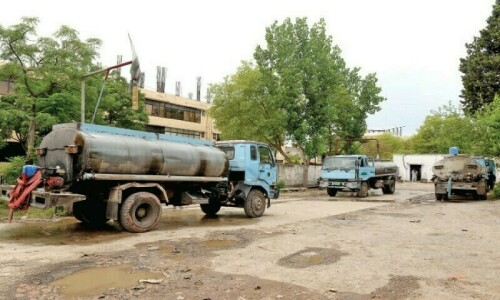DHAKA,: The military-backed caretaker government of Bangladesh has arrested over 440,000 people, many of whom have been detained arbitrarily and initially held under the state of emergency, says the London-based human rights watchdog Amnesty International in its annual report released on Wednesday.
“Over 440,000 people were arrested on various grounds during the year.
Many detainees were detained arbitrarily, initially held under the emergency rules, then served with a detention order under the 1974 Special Powers Act (SPA), said the report. “Some were then charged with politically motivated criminal offences.” The AI report also said that a number of detainees, held without trial under emergency regulations or the Special Powers Act, have reportedly been tortured or ill-treated.“Fair trial safeguards were weakened by the use of Special Courts which imposed tight restrictions on defendants’ access to lawyers, and by the denial of bail to defendants charged under emergency regulations,” said the report titled ‘Amnesty International 2008: State of the World’s Human Rights’ in a chapter on Bangladesh.
The report referred to ‘widespread concerns both about the role of the army in the country’s political life and about economic problems, including a sharp rise in the cost of food and other essential goods’.
Amnesty International expressed its concern at the inaction against the law enforcing agencies that had been involved in more than 100 custodial deaths during the period of emergency.
“The government embarked on an anti-corruption programme, and took steps towards judicial and electoral reforms, but the pace of reforms was disappointingly slow,” said the report.
The report mentioned that some people held under emergency rules were accused of ‘extortion’ or other criminal activities. Detainees included over 160 politicians from the main political parties, as well as some wealthy business people.
It said that despite emergency rules that restrict the freedom of association, members of certain parties supported by the army-controlled interim government were allowed to meet with no restrictions throughout the year.
Amnesty felt that although wide-ranging emergency restrictions on the news media were not strictly enforced, their continued existence intensified self-censorship by newsmen and editors. Journalists were threatened with arrest if they criticised intelligence agencies or the army.
Amnesty observed that, as in previous years, ‘human rights defenders were subjected to arbitrary detention and torture’ and ‘lawyers were allegedly threatened with arrest on corruption charges if they took up high-profile cases’.















































Dear visitor, the comments section is undergoing an overhaul and will return soon.